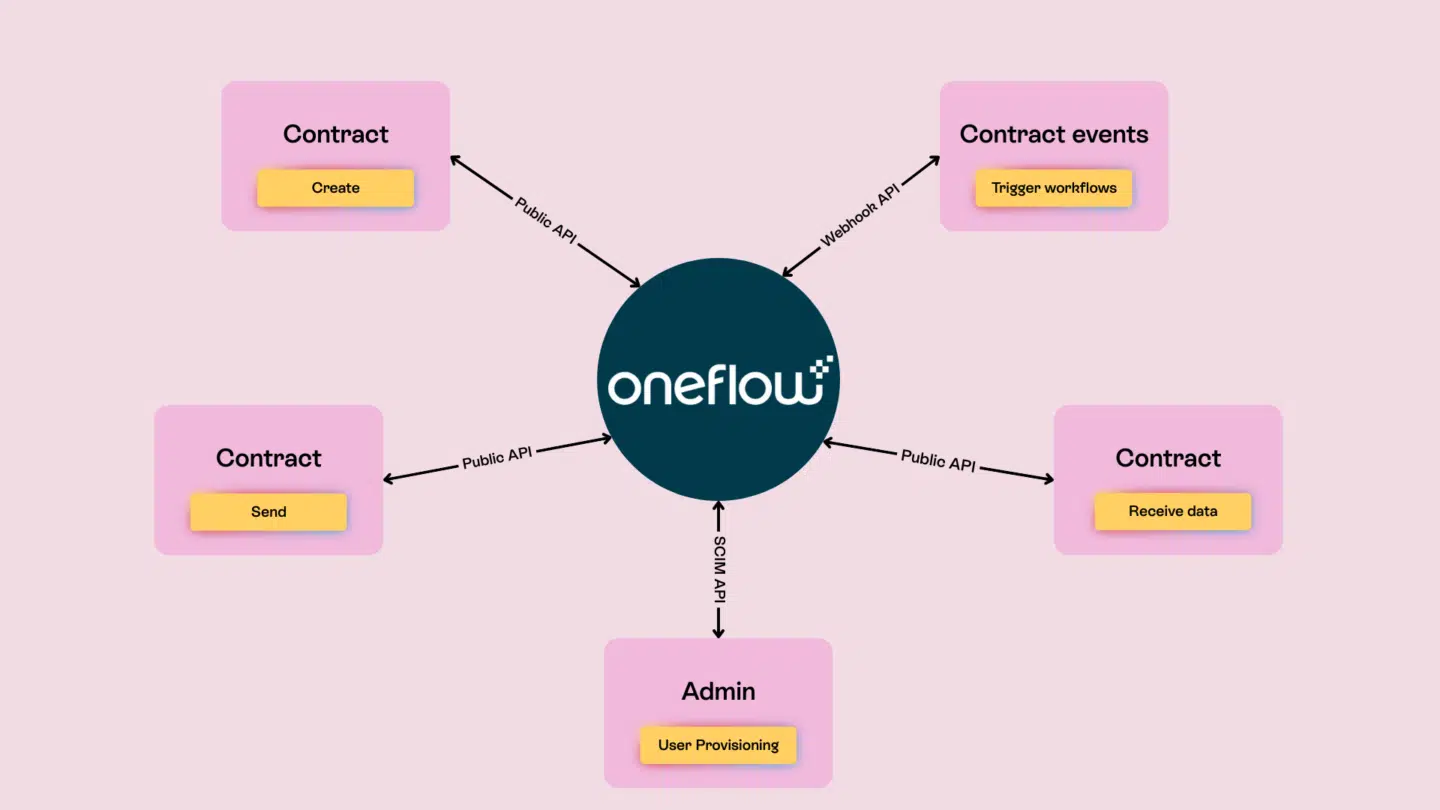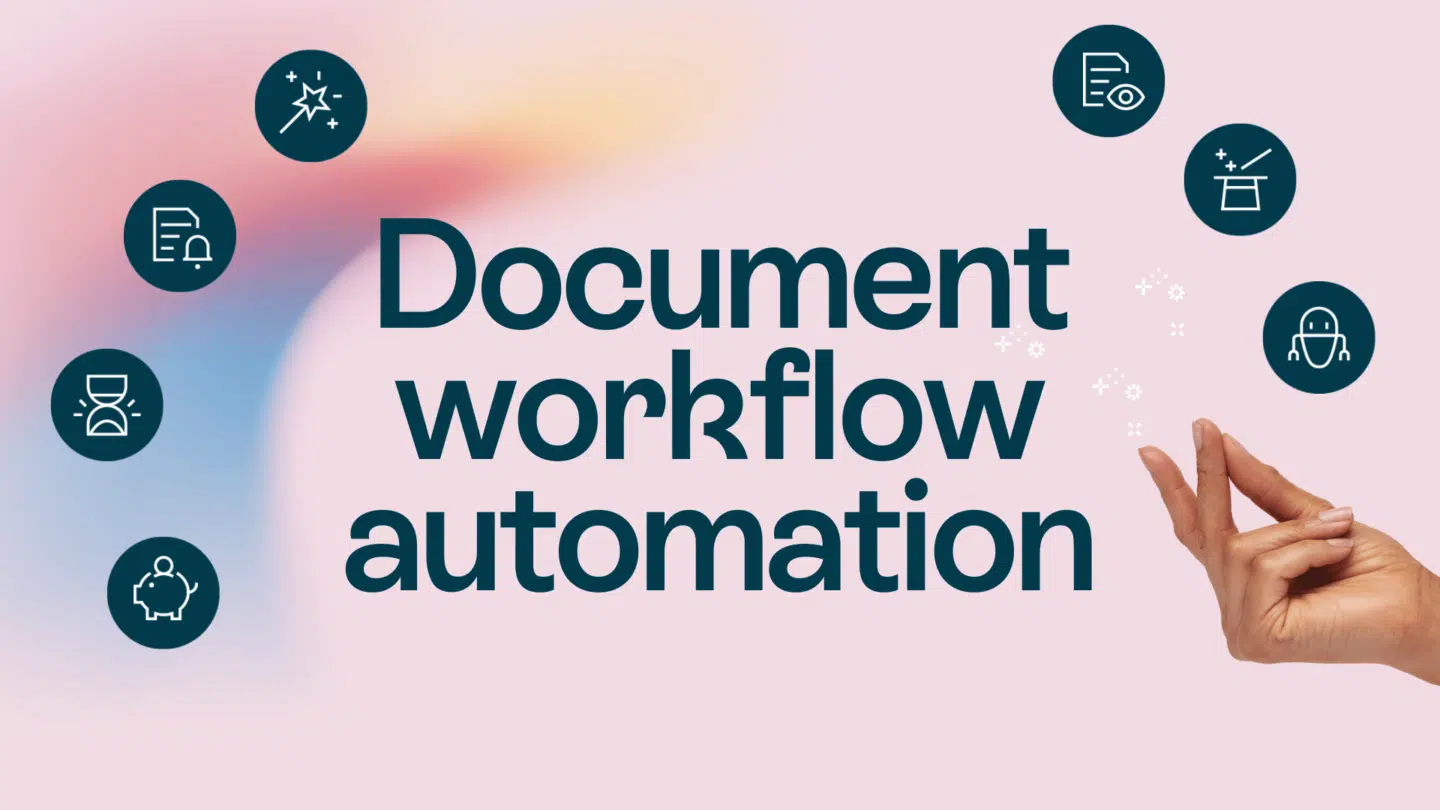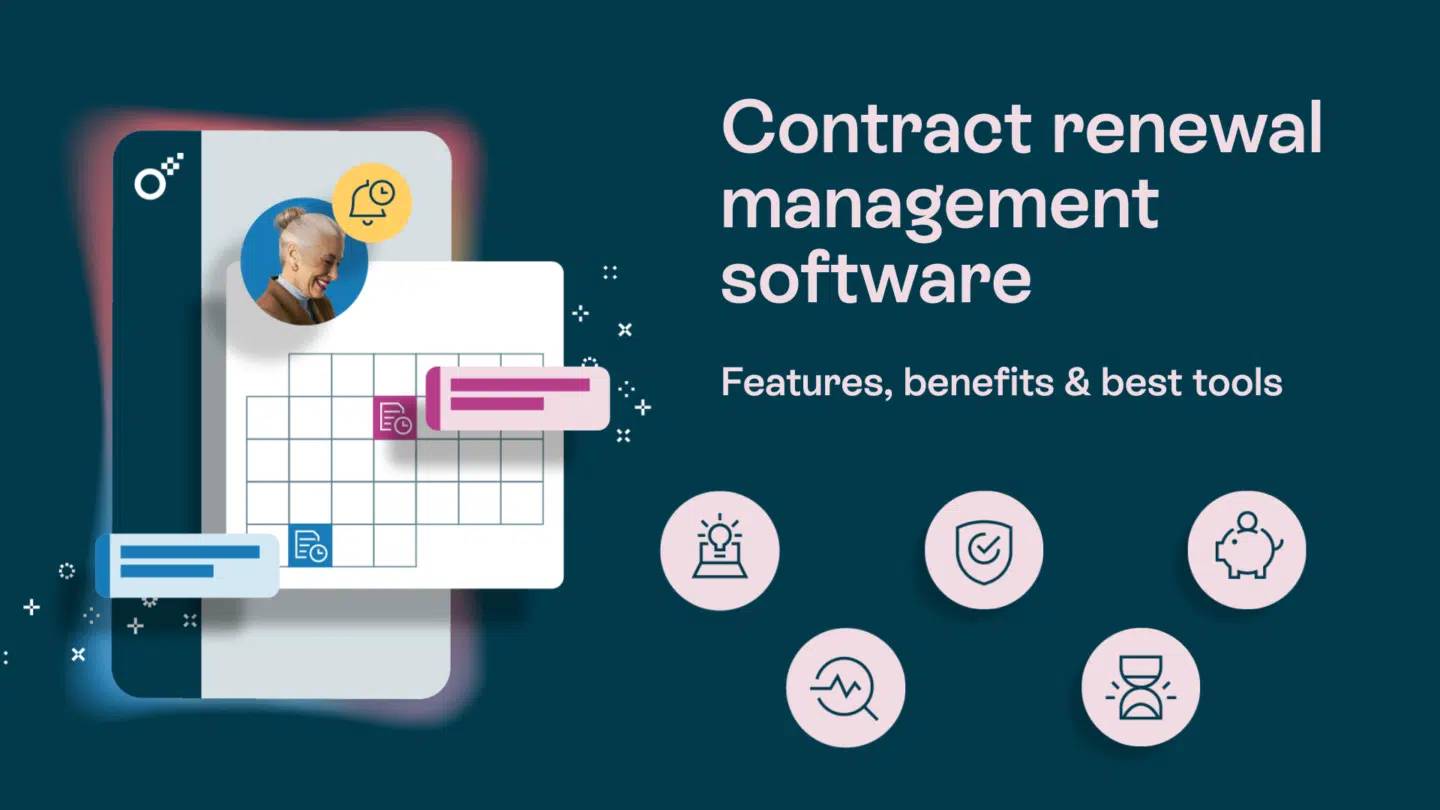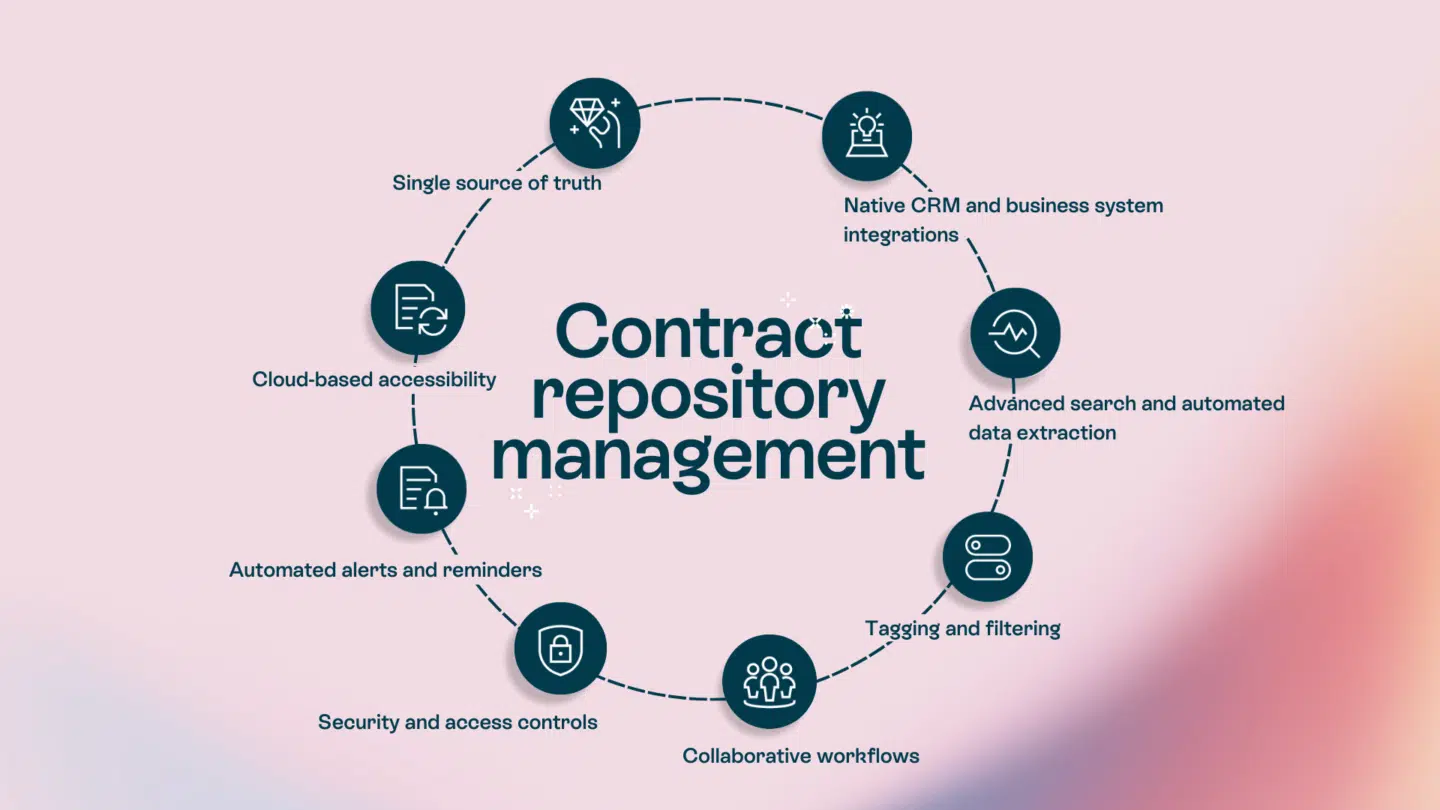Selecting the right contract automation platform is a game-changer for efficiency, compliance, and business growth. But with so many options available, how do you choose the best fit for your organization?
In this guide, we’ll break down the critical factors to evaluate before investing in a contract automation solution, helping you make a data-driven, strategic decision.
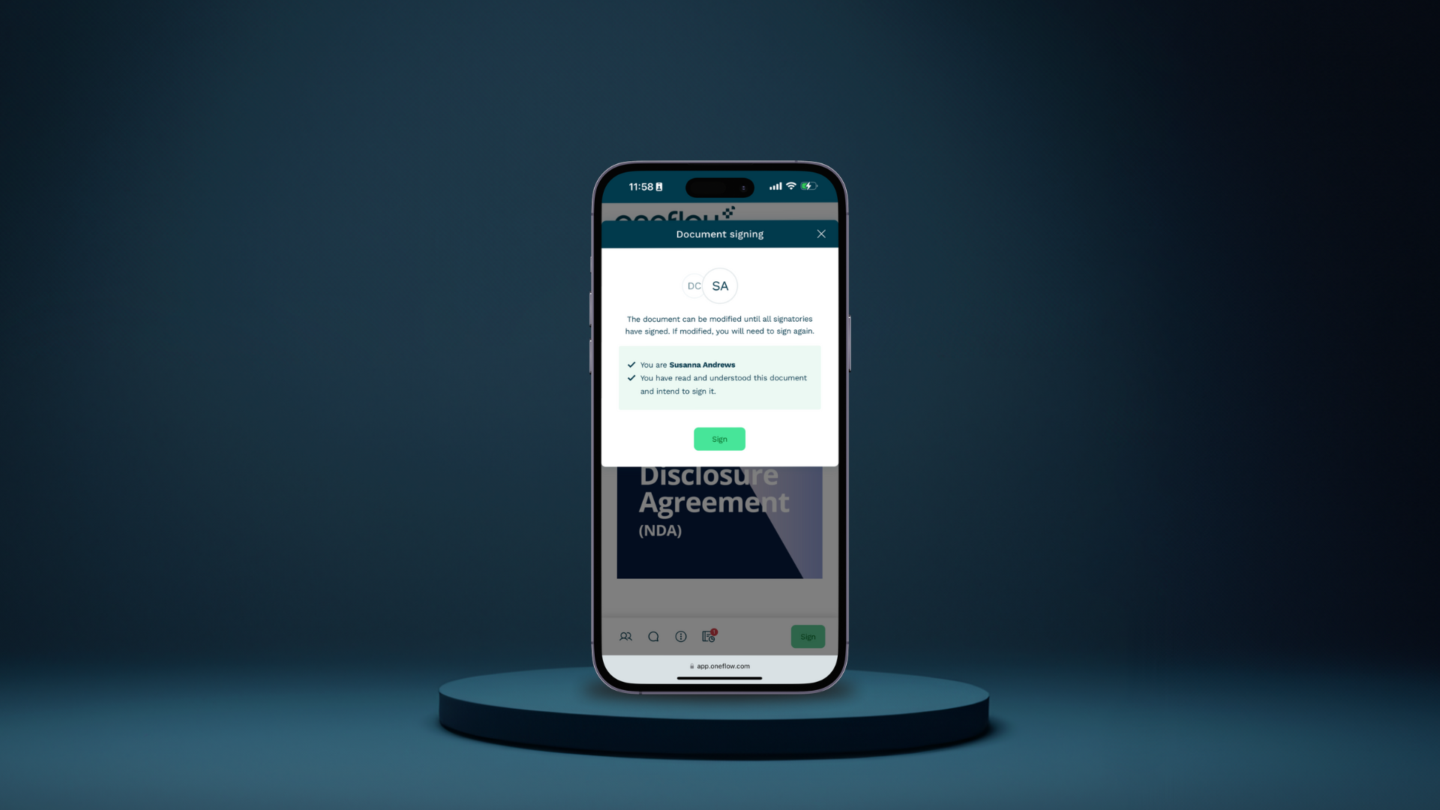
1. Define your business needs
Before evaluating software, clarify your core needs and objectives:
- Do you need automation for contract creation, approval, and execution?
- Are you struggling with contract visibility and tracking?
- Do you require integrations with your CRM, ERP, or other tools?
💡 Use the Oneflow Business Case Playbook to map out your contract management pain points before shortlisting solutions.
2. Key features to look for before choosing a contract automation platform
🔹 Automation & workflow management
- Does the platform offer automated contract collaboration and approval workflows?
- Can it designate who’s next in the signing order?
- Can it set up reminders for deadlines?
🔹 Compliance & security
- Does it provide audit trails and compliance tracking?
- Is it GDPR compliant and/or ISO-certified?
🔹 Integration capabilities
- Can it seamlessly connect with existing systems such as Salesforce, HubSpot, Microsoft Dynamics, and/or other HR systems?
- Does it have an integrated e-signature service?
Read also: Top integrations for contract management
🔹 User experience & adoption
- Is the interface intuitive for the broader teams working with contracts such as the legal, procurement and operations teams?
- How easy is the onboarding process?
🔹 Reporting & analytics
- Can you track contract performance, cycle times, and renewal rates?
- Does it provide real-time insights into contract interactions?
3. Value analysis: Cost vs. ROI
💰 Investing in contract automation should drive measurable ROI.
Consider:
✅ Time savings – How many hours will be saved per contract cycle?
✅ Risk mitigation – Can it reduce compliance penalties and contract disputes?
✅ Cost efficiency – How much will it save in administrative overhead?
📊 Use the Oneflow Value Analysis Framework to calculate the potential ROI before making a decision.
4. Vendor evaluation & support
Before committing, assess the vendor’s credibility:
✔️ Customer reviews & case studies – What do other businesses say?
✔️ Implementation & support – Is there a dedicated support team?
✔️ Scalability – Can the platform grow with your business?
💡 The Oneflow Implementation Timeline can help you estimate deployment time and avoid hidden costs.

5. Implementation considerations
- Trial: Can you test the platform before committing to a decision?
- Training & onboarding: How long will it take your team to adapt?
- Integration complexity: What IT resources are needed for setup?
📅 Use the Oneflow Implementation Timeline to plan your deployment step-by-step.
Conclusion
Choosing a contract automation platform is a long-term investment. By assessing your needs, evaluating features, and projecting ROI, you can make a confident, data-driven decision.
🚀 Need help building your business case? The Oneflow Business Case Playbook provides a ready-to-use framework for structuring your evaluation, analyzing value, and planning implementation.
📥 Use our playbook as your template and start building your business case!


